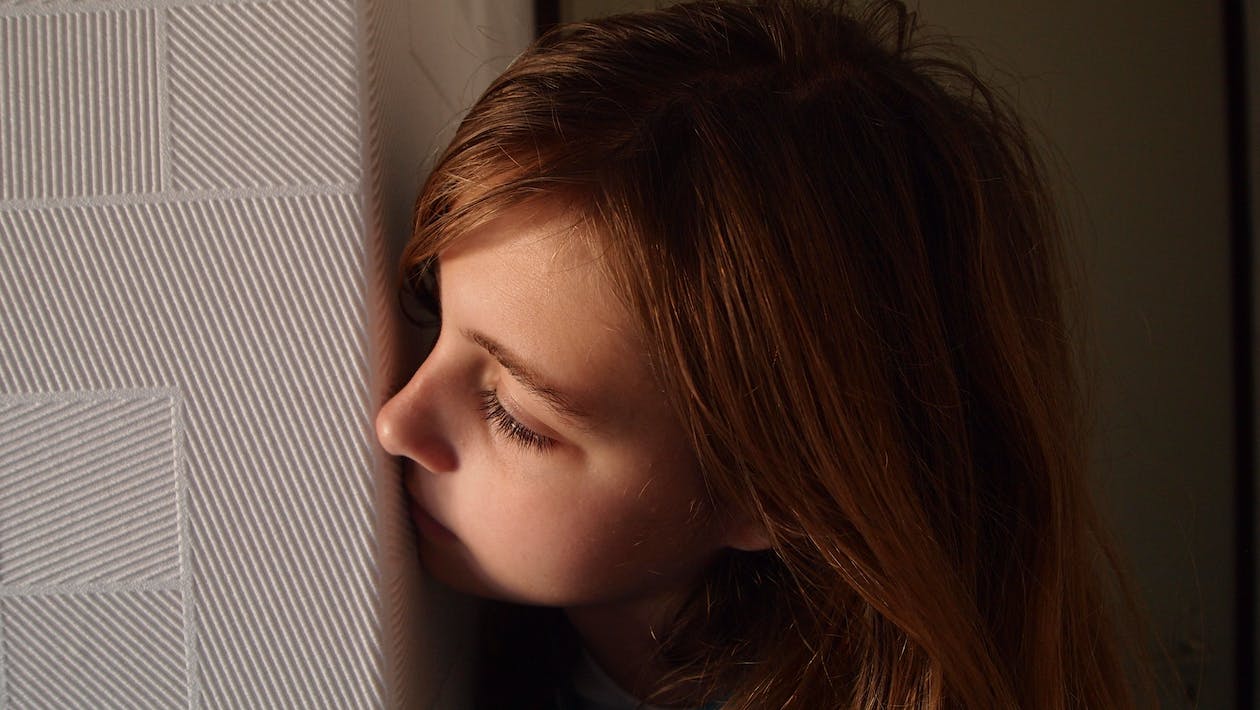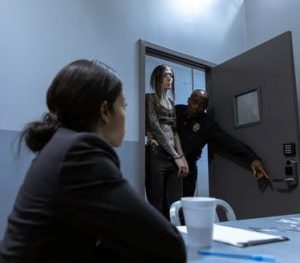
What it’s like to be “sectioned”
TW – Trigger warning for content about suicide and suicidal feelings. Please considering moving onto a different blog if you may feel particularly distressed reading about these subjects. It’s important to practice self care and only read content on the internet that will benefit you.
Show Article
This year we’ve had a viral pandemic, Covid-19 has hit the world like nothing we’ve seen before but now we’re seeing a mental health crisis that’s being called the second pandemic. I urge anyone who’s struggling with low mood, anxiety, feelings of stress, overwhelm or loneliness to seek help early because mental illness can take you to some dark places, I speak from experience.
In this blog I’m going to tell you about the time when professionals stepped in and used a piece of legislation called the Mental Health Act (MHA). The MHA is used, when professionals believe that a person has a mental disorder that is impacting them to such a degree that it is putting them or other people at risk and they no longer have capacity to make decisions about their care. It’s a controversial piece of legislation because it supersede parts of the human rights act, for example, it takes away the person’s right to freedom.
When I was suffering from severe depression and anorexia, I reached a point where I truly believed, the people around me would be better off if I was dead. My mind was so sick that I was hearing voices that told me over and over that I was a terrible person and the only solution was to take my own life.
I was a voluntary patient in a psychiatric hospital which means, in theory, I could come and go from the ward freely, however, I was behaving erratically so the nurses advised me to remain on the ward for my own safety. If a patient is in hospital voluntarily, certain nurses can use the MHA to detain the patient in order to get an assessment from an Approved Mental Health Professional (AMHP).
However I had made plans to end my life and I was determined to carry them out so I managed to escape through the air lock out onto the streets of Southampton.

My mind was fixed on ensuring that nothing stopped me, I remember various people ringing my mobile but this time between leaving the ward and what happened next is a blur…
A while later, I’m not proud of the fact I ended up being rugby tackled into the back of a police car and handcuffed; this was after being chased by a policeman, down a dual-carriageway.
The police can use the MHA if they believe someone is a danger to themselves or others and they need to be removed to a safe place in order to be assessed by an AMHP.
They took me to the police station, with my hands cuffed behind me, I felt like a criminal; the voices were telling me what a bad person I was, but in a strange way, a sense of calm came over me. While I felt scared, the kindness of the police officers made me realise they were trying to help.
When we arrived at the police station certain paperwork had to be completed before they could take the cuffs off; I just had to wait. All sorts was going through my head—I felt like I’d failed but I also felt a bit glad that the police were helping me—confusing sums it up!

Once I was in a cell, various items including my shoes and hoodie string were confiscated and I was on “suicide watch”—this means, a police officer was sitting outside my cell at all times observing me.
During this time my nearest relative and the AMHPs were contacted. I don’t know how long I waited (time is a strange thing when you’re mind is keen for it to stop) but eventually I was seen by a psychiatrist and a social worker—the assessment was a blur, I still wanted to die but I knew if I told them that they would section me. I couldn’t work out what the right thing to say would be—I wanted them to let me go but I knew they weren’t going to. I wasn’t going to agree to go back to hospital so it felt like a catch 22.
I couldn’t agree to go back to hospital because it wasn’t helping. There was no hope of me getting better…these voices were telling me to kill myself and I couldn’t see any way of not obeying them. The whole situation felt dire, I just didn’t know what to do!
I could tell the assessment ended because they just nodded at each other and then they said “for your safety, we’re going to detain you under section 3 of the Mental Health Act”. They took me back to hospital. To be honest I had an odd sense of relief. I had the urge to run when I got out of the police car but I knew it would be pointless. I wondered if I would be breaking the law if I ran? It was a strange feeling.
Once back on the ward, I was completely exhausted and went to bed in a bit of a daze. I felt embarrassed and ashamed that I’d caused so much fuss.
Time on section is strange. I experienced mixed feelings, it wasn’t as though my depression disappeared over night, I continued to plot my escape but knew I would be wasting everyone’s time. Part of me was angry and I feared that I would never feel any better, that the blackness would surround my forever.
I spent many days just going through the motions, I wasn’t treated any differently than when I was a voluntary patient, I could still take part in all the occupational therapy activities, I watched TV and I tried to read, to colour and do puzzles but my concentration was appalling.
I was offered an appeal, which they’re legally obliged to do but I really couldn’t see the point, I’d not heard of anyone winning their appeal…
It felt like part of me could think logically, that being on section was keeping me safe, but part of me was very unwell—the logical part knew if I was off section, I would continue trying to harm myself and would probably end my life eventually. While part of me thought that was the best thing for everyone, part of my realised that if they were trying to keep me alive, maybe there was some hope.

When on section 3, you have to stay in hospital and abide by any treatment they decide. I had to take medication and they kept suggesting I talk to the nurses about how I was feeling but there were different people on each shift and often agency staff I didn’t know. I found writing was a really important part of my recovery, and still is!
There are also different observation levels (staff checking you’re safe). When unwell, patients can be observed 1:1 by staff, as patient’s recover they’ll be observed 2-6 times each hour then most patients will be on general observations, once per hour.
The only time you’re allowed off the ward is if they grant you section 17 leave. This is a specific part of the MHA that your responsible clinician has to agree to and the terms of your leave are specified, i.e. how long, where to and who you go with. Going on leave is a negotiation between patient and clinician. Leave is an important part of recovery, but being ready for each stage is crucial.
| Section number | Max. Length | Description |
|---|---|---|
| 2 | 28 days | Assessment—Individual can be detained in order to assessed by an AMHP whether they have a mental disorder |
| 3 | 6 mths | Treatment—Individual can be detained in order to treat a mental disorder |
| 136 | 24 hours | Place of safety and assessment—Police can detain an individual in a place of safety (care home, hospital or police station) who appears to have a mental disorder if they think there is need to keep the individual or others safe. Arrangements must be made for the individual to be assessed by an AMHP (can be extended by 12 hours) |
| 5 | 72 hours | Certain nurses can detain voluntary patients if they believe they need to be assessed by an AMHP detention under section 2 or 3 |
| 17 | Leave—Patients detained under the MHA can be given rights to leave hospital by their responsibly clinician |
Being on section can be scary, frustrating and lonely. It can be difficult to hold onto the idea that it’s for the good of the individual. Sometimes time and patience is the key for health to be restored.
Sometimes, just as hard as being sectioned under the MHA is coming off section. When you’ve been dependant on hospital to keep you safe, coming out into the cruel and harsh reality of the world where you have to look after yourself can be difficult. I was in hospital for over a year in total.
When I was ready to be discharged, I built up the time I spent off the ward gradually. A few hours during the day, then 1 night, then 2 and so on. One day, I was due to go back to hospital as part of my gradual phasing and there was someone acutely unwell who’d taken my bed so there was no bed for me—the raw reality of the underfunding of the NHS! There and then, I was discharged from hospital!
I still needed a lot of support from family and friends and for that, I’m eternally grateful. The support you get from the community teams can be hit and miss, I’ve had some excellent care and at other times I’ve felt very alone. Being sectioned was a very small part of my recovery and one I wouldn’t like to repeat but it kept me safe when I couldn’t do that for myself.
Hide Article




